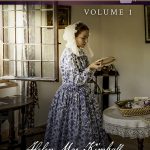Inspiring Stories
Pleasant Disposition
Accordingly, the next time I saw the Prophet was at his own house in Kirtland. He sat down at one end of the table and I sat next to him. He seemed to have changed considerably in his appearance since I first saw him at Hiram, four and a half years before. He was very ready in conversation, and had apparently lost that reserve and diffident feeling that he seemed to have before. He was free and easy in his conversation with me, making me feel perfectly at home in his presence. In fact, I felt as free with him as if we had been special friends for years. 1
Daniel D. McArthur
When Joseph Smith first spoke to me, I was in the woods about half a mile south of Kirtland. He was on his horse and I was chopping wood. Said he, “Good afternoon.” I returned the compliment. He had a smile on his face, and I felt that he was going to say something else. “You are not the young man who sold his wife for a bull-eye watch the other day, are you?” he asked. I replied, “No, sir.” He went on laughing. There was a man who had sold his wife for a bull-eye watch a day or two before, and there was quite a talk about it in the neighborhood, so I suppose he thought he would have a little fun with me.
Edward Stephenson
I have often seen the Prophet indulge in a game of checkers. He was cheerful—often wrestling with Sidney Rigdon. One time he had his pants torn badly, but had a good laugh over it. In Missouri, when mob forces oppressed the Saints, we were encamped in Adam-ondi-Ahman, mostly around campfires without tents. One night the snow fell four or five inches. The Prophet, seeing our forlorn condition, called on us to form into two parties—Lyman Wight at the head of one line and he (Joseph) heading the other line—to have a sham battle. The weapons were snowballs. We set to with a will full of glee and fun. 2
. . .
He was cheerful and comforting. He said, “I shall not be sacrificed until my time comes; then I shall be offered freely.”3
Benjamin F. Johnson
As a companion, socially, he was highly endowed—was kind, generous, and mirth loving. For amusements, he would sometimes wrestle a friend, or others; would test strength with others by sitting upon the floor with feet together and stick grasped between them. But he never found his match. Jokes, rebuses, matching couplets in rhymes, etc., were not uncommon. But to call for the singing of one or more of his favorite songs was more frequent. Of those, “Wives, Children and Friends,” “Battle of River Russen,” “Soldier’s Tear,” “Soldier’s Dream,” and “Last Rose of Summer” were most common. And yet, although so social and even convivial at times, he would allow no arrogance or undue liberties.
While with him in such fraternal, social and sometimes convivial moods, we could not then so fully realize the greatness and majesty of his calling, which, since his martyrdom, has continued to magnify in our view, as the glories of this last dispensation were more fully unfolded to our comprehension.4
. . .
The Prophet often came to Ramus, but after my arrival he lodged in no house but mine. I was proud of his partiality and took great delight in his society and friendship. When with us there was no lack of amusement, for with jokes, games, etc., he was always ready to provoke merriment, one phase of which was matching couplets in rhyme, by which we were at times in rivalry; and his fraternal feeling in great degree did away with the disparity of age or greatness of his calling.5
Orange L. Wight
He was very kind and sociable with both young and old. We often bathed in the limpid waters of the Grand River. Although but a boy, I was invited to bathe with them. At one time we had a jolly time. There was Joseph the Prophet, my father Lyman Wight, Sidney Rigdon, and several others.6
Peter Hardeman Burnett
Joseph Smith was a very stout, athletic man, and was a skillful wrestler. This was known to the men of Daviess County, and some of them proposed to Smith that he should wrestle with one of their own men. He at first courteously objected, alleging substantially that though he was once in the habit of wrestling, he was now a minister of the gospel and did not wish to do anything contrary to his duty as such, and that he hoped they would excuse him upon that ground.
They replied that they did not desire to do anything contrary to his calling; that they would not bet anything; that it was nothing but a friendly trial of skill and manhood, for the satisfaction of others, and to pass away the time pleasantly; and that they hoped he would, under all the circumstances, comply with their request.
He consented. They selected the best wrestler among them, and Smith threw him several times in succession, to the great amusement of the spectators. 7
- Lorenzo Snow, The Improvement Era, XL (February, 1937), pp. 82-84; Hyrum L. Andrus and Helen Mae Andrus, comps., They Knew the Prophet [Salt Lake City: Bookcraft, 1974], 32.
- Autobiography of Edward Stevenson,” Typewritten manuscript, Church Historian’s Library, Salt Lake City, Utah
- “They Knew the Prophet” [Salt Lake City: Bookcraft, 1974], 88
- “They Knew the Prophet” [Salt Lake City: Bookcraft, 1974], 89
- They Knew the Prophet [Salt Lake City: Bookcraft, 1974], 93
- Letter written by Orange L. Wight to Joseph I. Earl and Harriet M. Earl, Bunkerville, Nevada, May 4, 1903, typewritten copy in the Brigham Young University Library, pp. 3-9.
- Peter Hardeman Burnett, An Old California Pioneer (Oakland, 1946), pp. 40-41.







